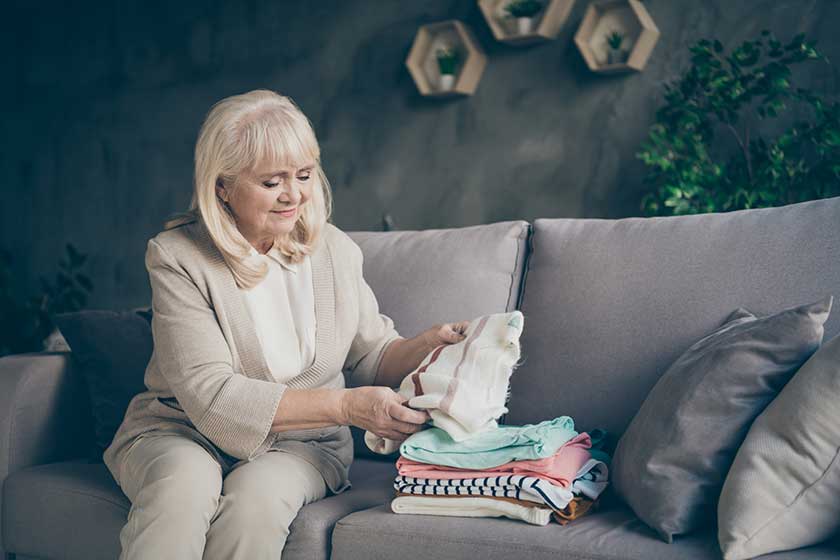Dementia is a disorder that affects the brain and can cause memory loss, personality changes, and other difficulties with daily life. Hoarding is one of the most challenging symptoms of dementia to handle in a loved one, but it’s not impossible! The good news is there are ways to help your loved one cope with this issue while in memory care in Hollins, VA, and keep them in their home as long as possible. Here are some tips on how to manage dementia-related hoarding:
Create A Space For The Person
If you are providing care for someone with dementia, it’s important to create a space for them to be comfortable. This may mean setting up a separate room or allowing them to have their own private space in the living room. They must also have their furniture and decorations that they can use as they please. This will help reduce clutter and make your loved one feel more at home.
Label boxes, baskets, and containers with their contents so they can easily find what they’re looking for. Use hooks or tension rods in the kitchen, so pots and pans are easy to reach when cooking. If you know where something is supposed to go, then it’s less likely that you’ll put it somewhere else later on down the line-and. This will help reduce clutter as well!
If you’re having trouble getting rid of items, consider asking a professional organizer for help or hiring someone who works with hoarders (such as a professional organizer or therapist). This can be easier than trying to tackle the problem yourself–and it allows both you and your loved one some space from each other while still addressing their concerns about clutter management.
Focus On Facilitating, Not Fixing
It’s important to focus on what they can do, not what they can’t do. People with dementia often have difficulty with short-term memory and executive function. If a resident tends to hoard, their ability to plan for the future may also be compromised; it may be difficult to anticipate what might be needed or wanted shortly. Instead of focusing on these deficits and trying to fix them (which is unlikely), try facilitating positive behaviors instead by supporting your loved one in doing things that are manageable at this point, for example:
- Encourage them when they show an interest in taking care of their home by cleaning or cooking meals together
- Help them organize belongings so that they know where everything is located
- Talk about past experiences with similar items, such as souvenirs from trips taken together
Talk About Their Feelings And Needs
Talking with a loved one experiencing dementia-related hoarding may be difficult, but trying to understand what they’re going through is essential. You can start by asking questions like: “Are you feeling anxious? Are there things that make you feel safe and secure?” Asking open-ended questions will help you learn more about your loved one’s experiences and how they perceive their surroundings. This knowledge will help guide you when deciding how to proceed with the cleanup process.
Conclusion
These tips will help you better understand how to manage a loved one’s hoarding behavior in memory care. Dementia-related hoarding can be a complicated issue, but it doesn’t have to mean an end to your relationship with this person. By approaching them with compassion and empathy, you can create a space where they feel safe enough to share their feelings without feeling judged or embarrassed about their needs.







